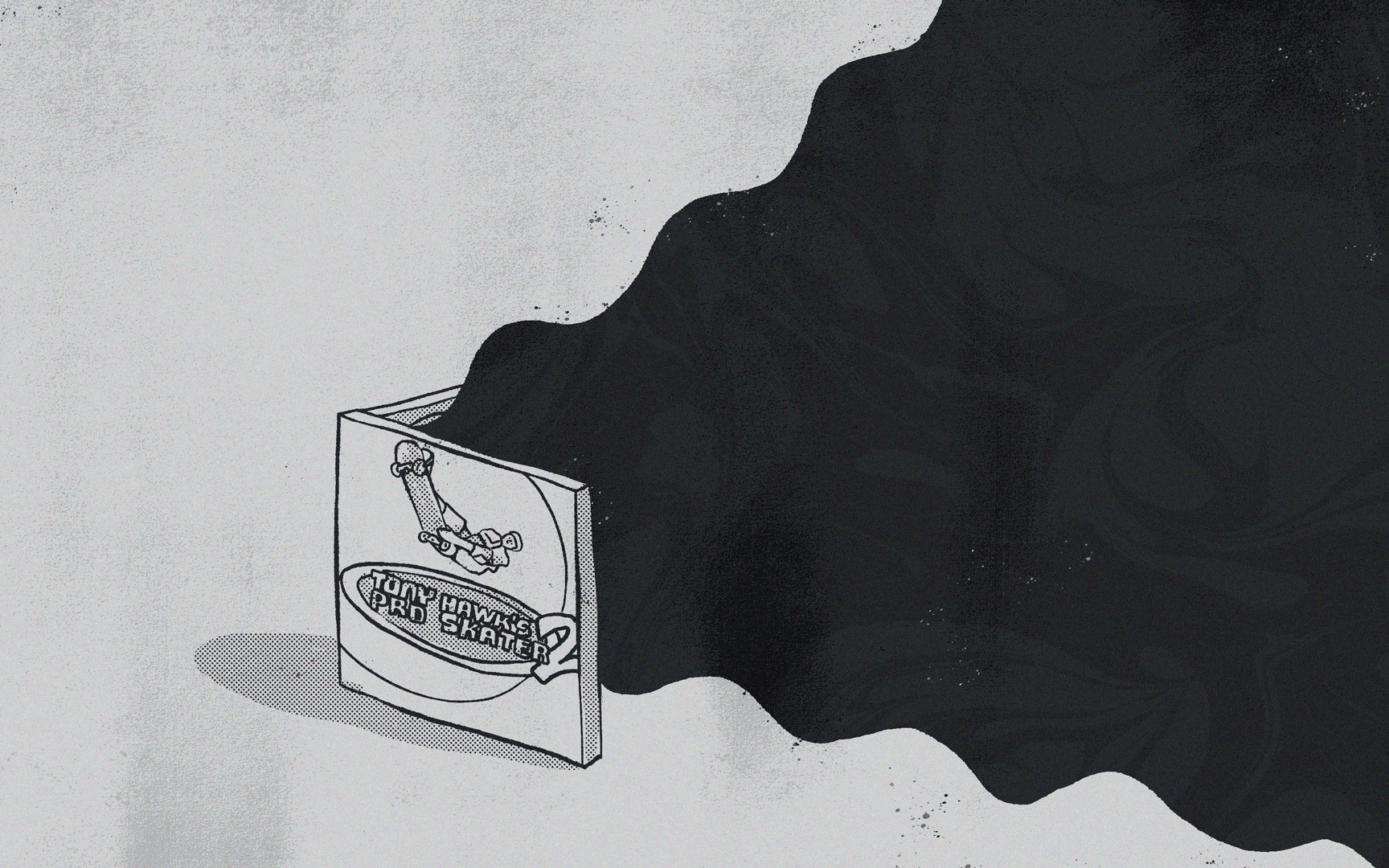The series helped to catapult the underground skate scene into the mainstream
During the early-to-mid-2000s, there were very few video game franchises that had the impact and success of the Tony Hawk’s Pro Skater (THPS) franchise. Developed by Neversoft, the series helped launch skateboarding into the mainstream and contained some of the best-selling and popular games of their time. They did so through a perfect marriage of great gameplay, an authentic tone, and soundtracks that perfectly encapsulated skate culture while also defining a generation of young gamers, including myself.
When the first game was released in 1999, skateboarding still had a very underground, DIY aesthetic. It’s also a sport that allows for more self-expression and creativity than most others do and did at the time. The same can be said for the hardcore, alternative, and punk rock scenes of the ‘90s, as they were breeding grounds for some of the most experimental music of that era. This commonality is a huge part of what made alternative music and skateboarding such a perfect pair, which Tony Hawk and Neversoft clearly understood.
While big games of the time like Crash Bandicoot and Mario had original scores, the first THPS game opted for licensed music from lesser-known acts. At a time when the charts were dominated by pop artists like Christina Aguilera and the Backstreet Boys, THPS introduced an entire generation to acts like Dead Kennedys and The Suicide Machines. It provided the game with music that matched skateboarding’s aesthetic and gave the game a level of authenticity that was unmatched by other sports games at the time.
With the success of the first game, each subsequent sequel’s soundtrack got more and more expansive. With bigger budgets bringing larger tracklists, the games also added more eclectic music that represented skaters from different walks of life. With THPS2, the franchise saw the addition of hip hop music. Though it was only a few tracks from the likes of Public Enemy and Naughty by Nature, as well as the genre-blending “Guerilla Radio” by Rage Against the Machine, this soundtrack set the foundation for the games that followed.
Future games in the franchise featured music from a wide array of artists, from folk-punk pioneers Violent Femmes to legendary underground hip hop crew Hieroglyphics, but nothing ever felt out of place. Even as the games got more and more popular and the soundtracks got bigger and bigger, they never lost touch of skateboarding’s counterculture roots. Even if some of the later games in the franchise weren’t as well-regarded, the soundtracks are still some of the series’ best.
As far as licensed video game soundtracks go, they were the gold standard, influencing many games that followed, and maintaining their reputation as some of the best of all-time. They also managed to show a clear understanding of the culture they were representing, and how integral the music is to it. This is something that sports video games have since lost touch with.
For years now, EA Sports’ yearly entries for NHL, Madden and the on-again-off-again NBA Live have all had lacklustre soundtracks. They’ve become shells of their former selves, or they’ve ditched the sound that fans loved entirely. They play less like well-curated playlists of crowd-pumping anthems that fit the sport, and more like music that out of touch executives think the sound of the sport should be.
The NBA 2K franchise has a different issue. The game clearly understands basketball culture, as it’s shown through plenty of facets of the game, including some of the songs in the soundtrack. The issue is, as the games have gotten more popular, they’ve started including massive hit songs or letting artists curate soundtracks that have a disproportionate number of their own songs, like Travis Scott for NBA 2K19. The game gets more and more commercial every year, and the soundtrack falls into that as well, sacrificing its integrity to include more popular music.
This is a problem that the Tony Hawk games have never really faced, and thankfully with the remake, they’ve kept the vast majority of tracks from the original two games. On top of that, they’ve added 37 new songs to the soundtrack. With newer music from punk acts like American Nightmare and Less Than Jake to classic tracks from A Tribe Called Quest and Sublime, most of the new additions fit right in.
The THPS games and their soundtracks have become an iconic part of skateboarding and its history, as well as having a massive impact on gaming as a whole. For the better part of a decade, the series has managed to captivate its audience with an authentic representation of skate culture while introducing them to a plethora of alternative and underground artists. The games were wildly innovative and infinitely entertaining, raising the bar for what a game’s soundtrack could be and shaping the musical taste of an entire generation.
Graphic by Taylor Reddam
